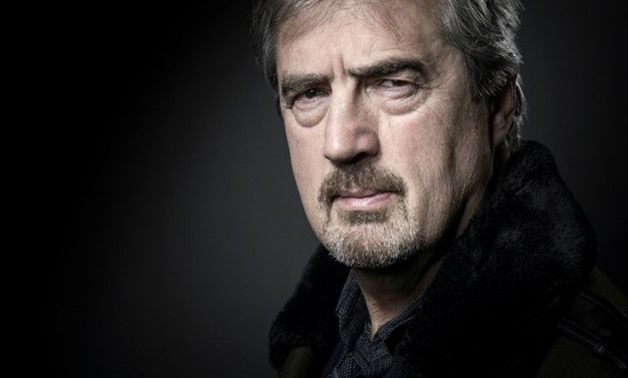
Sebastian Barry's new historical novel "Days Without End" has won both the Costa and Walter Scott prizes
Sebastian Barry thought he was having too much fun writing his rollicking historical novel "Days Without End" for it to be any good.
But his epic tale of love, loss and friendship that spans the Irish famine, the Indian Wars of the American West and US Civil War has become a runaway hit, with Nobel prize winner Kazuo Ishiguro calling it a "true leftfield wonder... a superbly lyrical western offering a sweeping vision of America in the making."
Even as the prizes pile up -- the book has won both the Costa and Walter Scott prizes, making him the only writer ever to have won the awards twice -- Barry claims to have been spun by its success.
"I was convinced it was a non-functional error, that it could not possibly work as it was far too exciting to write," the Dubliner told AFP.
"You can go 10 years, maybe a whole lifetime without that, and it is beautiful when it happens. You know how rare and unlikely it is."
Not all that rare though in Barry's case.
He has been clocking regular hits both on stage and on the page with his finely crafted exhumations of the thwarted lives of his Irish ancestors since his breakout West End and Broadway hit "The Steward of Christendom" in 1995.
His most-loved book "The Secret Scripture" was pipped to the Man Booker Prize in 2008, while the First World War tragedy "A Long Long Way" was listed as one of the best novels of the past 25 years by the British newspaper The Observer.
"The whole adventure of these books has been to try and find, if only in the imagination, the bits and bobs of my family that weren't talked about, the people around whom a silence fell," he said.
"Days Without End" follows the seemingly unpromising fate of an ancestor on his maternal side called Thomas McNulty.
- 'Great American novel' -
To some extent Barry also modelled Thomas and John Cole's easy intimacy on his own son's relationship with his boyfriend.
"Maybe because they are of the same gender they know things about each other, the physics, the inner knowledge of the heart and soul. They are attentive to each other in an almost mathematical way," he said.
Barry first attempted two decades ago to grapple with the "historical tragedy of an Irish person, essentially an aboriginal, being forced to go to America, joining the US Army and taking part in the destruction of the Native American people, who were not unlike himself."
But he abandoned the novel.
The legendary chronicler of the West, Peter Matthiessen, the author of "The Snow Leopard", offered to help. "'Come talk to me when the smoke clears,' he told me," Barry said.
"I never did and when he died I thought, 'I have to do it now.'"
The book, Barry said, is partly a plea to "our lovely American friends about accepting that their country is founded on a genocide," as Matthiessen long insisted.
"It's not blaming, it's psychiatric. It's just good for mental health," Barry argued.
Yet his book could not be more American in that its great themes are survival and redemption despite the worst that humans can do.
But Barry laughed off "some people calling it a great American novel written by an Irishman."
"Sometimes you go to New York and you get discovered, then they rediscover you again 20 years later. The literary memory is short, and it is not surprising given the endless freight train of books that get published...
"Still, it's a lovely feeling that the circus just doesn't want you for a weekend."


Comments
Leave a Comment